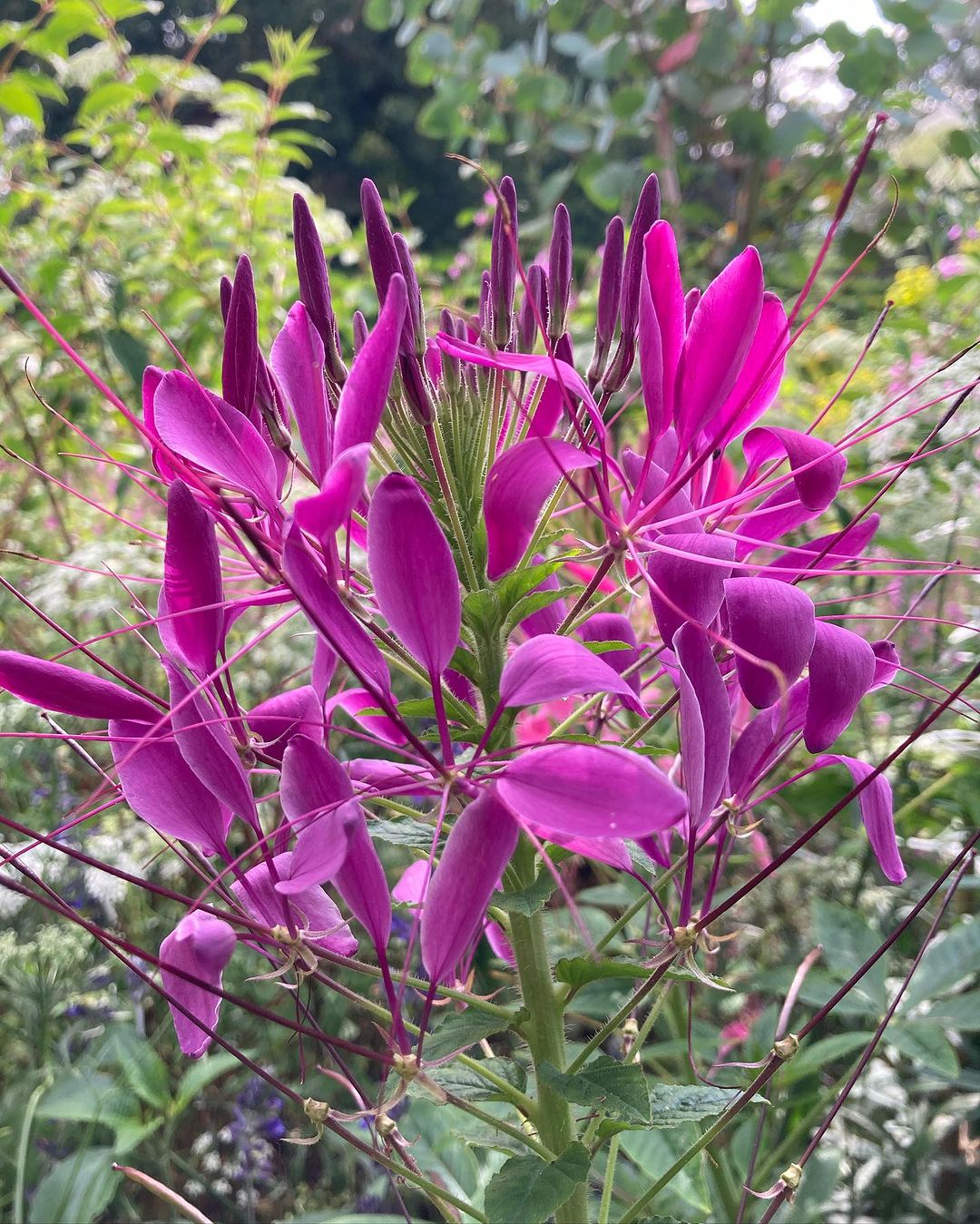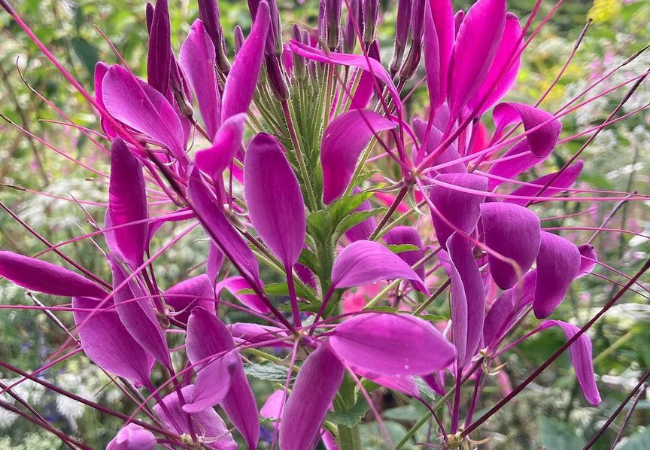Discover the world of Cleome, also known as the spider flower. Learn about different types, colors and how to grow these tall, interesting flowers. Perfect for USA gardeners looking to add height and attract pollinators to their gardens.
Have you ever seen tall flowers with long, thin petals that look a bit like spider legs? Those might be cleome flowers! Let’s learn about these interesting plants that can add height and color to gardens in the USA.
Here’s an easy-to-understand chart for Cleome:
AttributeDetailsBotanical NameCleome hasslerianaCommon NameSpider FlowerPlant Zone2-11 (usually grown as annuals)Sun ExposureFull Sun to Partial ShadeSoil TypeWell-drained, fertile soilWateringModerateGrowth HabitHerbaceous annualHeight/Spread3-5 feet tall, 1-2 feet wideSpecial FeaturesShowy, spider-like flowers in pink, white or purple; attracts butterflies; deer-resistant; easy to grow; self-seeding
What is Cleome?

Cleome is a type of flower that’s also called “spider flower” because of how it looks. It grows tall and has clusters of flowers at the top. Cleome is easy to grow and can make gardens look more interesting.
Types of Cleome
There are different kinds of cleome:
- **Cleome hassleriana: **This is the most common type in gardens.
- Cleome spinosa: This one has little thorns on its stems.
- Cleome serrulata: This is a native plant in some parts of the USA.
Colors and Shapes
Cleome flowers come in several colors:
- Pink
- Purple
- White
- Rose
The flowers grow in round clusters at the top of tall stems. Each flower has long stamens that stick out, which is why they look a bit like spiders.
Growing Cleome
If you want to grow cleome, here’s what you need to know:
- **Sunlight: **Cleome likes full sun, which means at least 6 hours of direct sunlight each day.
- **Soil: **They grow best in soil that drains well.
- Water: Water regularly, but don’t keep the soil too wet.
- **Planting: **You can plant cleome seeds directly in the garden after the last frost.
For more gardening tips, check out the Cooperative Extension System website.
Caring for Cleome
Cleome is pretty easy to take care of:
- Water when the soil feels dry.
- You don’t usually need to fertilize cleome.
- Deadhead (remove old flowers) to keep the plant blooming.
- In cold areas, cleome usually grows as an annual, which means you’ll need to plant new ones each year.
Uses for Cleome
Cleome isn’t just pretty to look at. It has other uses too:
- Garden decoration: It adds height and color to flower beds.
- Cut flowers: Cleome can look nice in flower arrangements.
- **Attracting pollinators: **Bees and butterflies like cleome flowers.
- **Native plant gardens: **Some types of cleome are native to parts of the USA.
Cleome in Gardens
Cleome works well with other plants:
- Plant it at the back of flower beds because it grows tall.
- Mix it with shorter flowers for contrast.
- Use it to fill in spaces between shrubs.
The United States National Arboretum has more ideas for using different flowers in gardens.
Cleome and Wildlife
Cleome can be good for wildlife in your garden:
- Bees and butterflies like the flowers.
- Some birds eat cleome seeds.
- Hummingbirds might visit cleome flowers.
For more info on gardening for wildlife, visit the National Wildlife Federation website.
Things to Watch Out For
While cleome is generally easy to grow, there are a few things to keep in mind:
- Some people find that cleome has a strong smell they don’t like.
- Cleome can self-seed, which means it might spread more than you want.
- The thorns on some types of cleome can be sharp, so be careful when handling them.
Fun Facts about Cleome
- Cleome seeds are edible and were used by some Native American tribes.
- The name “cleome” comes from an ancient Greek word.
- Cleome flowers open in the evening and close during the day.
- Some people call cleome “grandfather’s whiskers” because of how the flowers look.
Wrapping Up
Cleome is a fun and easy plant to grow in gardens. It’s tall, colorful and attracts butterflies and bees. Whether you have a big garden or just a small space for plants, cleome can add something special to your outdoor area.
Next time you see tall flowers with spider-like blooms, you’ll know you’re looking at cleome. Happy gardening!
For more gardening tips and plant care guides, visit usagardenhub.com.

